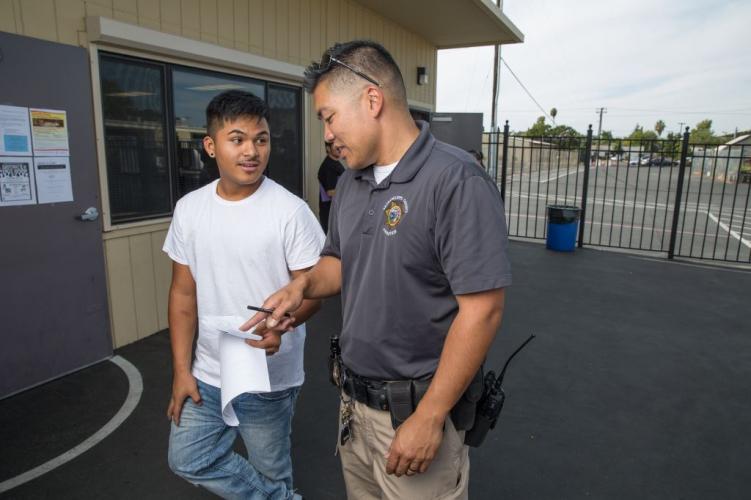Chief Probation Officers of California Positions on 2020 Ballot Propositions
CPOC Supports Prop. 25, Opposes Prop. 20
Chief Probation Officers of California Support Proposition 25
California Probation supports Proposition 25 because it will make California’s criminal justice system fairer, safer, and more equal.
- Prop 25 creates a new system where judges make pre-trial
release determinations based on a person’s flight risk and risk
to public safety with risk assessment tools.
- Using objective factors to inform a Court about safety and
flight risks, these assessment tools will inform a judge’s
decision, not replace a judge’s decision. Judges make
decisions, not computer algorithms.
- Prop 25 is built on scientific, and not on arbitrary factors
like commitment offenses or the amount of money someone has.
- Currently, if someone does not pose a serious public safety risk and sits in jail for weeks before their case is heard, they can lose their job, home, and positive engagement with their family, which only makes people more likely to commit more crime in the future, not less likely.
California Probation believes in the independent oversight provision of Prop 25, particularly on its impact by race, ethnicity, gender, and income level – to ensure more fairness in our system.
- Prop 25 contains checks and balances on California’s courts
requiring data collection for improvement, helping weeding out
any unintended biases that might exist.
- Validated risk assessments are a scientific tool and are by
far the best option to protect public safety, a person’s
constitutional rights, and decrease bias in the pre-trial
release. This new system will honor the constitutional safeguard
that everyone is innocent until proven guilty.
- Many times, we also see the current system forces some
innocent people to plead guilty to crimes they may not have
committed because they can’t afford to pay a non-refundable fee
of $5,000 or more to post bail, and they can’t afford to stay in
jail and risk losing their jobs or home while they wait for
trial.
Based on evidence and research to make our communities safe in the long-term, California Probation believes that the system Prop 25 creates will help low-risk offenders get the rehabilitation they need.
- Risk assessments allow us to make educated decisions on
pre-trial release using an unbiased, scientifically-proven way to
understand the factors of an individual that have contributed to
their justice involvement. This ensures public safety is the top
priority for pre-trial release, rather than the basis on the
individual’s ability to afford bail.
- Validated risk assessments are a scientific tool – and given other options like an officer’s subjective opinion, cash bail system, or the release of dangerous and violent offenders – it is by far the best option to protect public safety, a person’s constitutional rights, and mete out the unbiased pre-trial release.
Chief Probation Officers of California Oppose Proposition 20
California Probation believes that individualized and localized supervision is the best approach to improve community safety and support rehabilitation.
- Prop 20, however, proposes blanket changes around probation
revocation without evidence to support that court revocation or
other pre-determined sanction after three non-criminal behaviors
have positive outcomes.
- Over the last decade, several effective policy reforms that
localize and individualize supervision have taken place.
- These efforts were structured to provide public safety
entities the ability to address offender behavior in a manner
best fit to local conditions and the circumstances of the
individual versus a prescribed one-size-fits-all approach.
- Over-reaction, just like under-reaction, by the system, can and does have negative consequences on the rehabilitative process, delaying rehabilitation and risking further harm to our communities.
California Probation believes that community corrections should use all tools at our discretion. Imprisonment should only be applied at the discretion of a trained professional, and not an automatic response.
- The appropriate ‘dosage’ for each individual has proven to be
more effective in stopping a cycle of crime and beginning a
healthy path away from the criminal justice system.
- Interrupting the criminal cycle requires a careful balance of
necessary accountability and well thought out interventions that
include proper programs and services to address the risk to
re-offend as well as criminogenic and non-criminogenic needs.
- Research supports that reductions in crime are best achieved by interrupting the criminal cycle and changing a person’s long-term behavior by addressing their thought process. Prop 20 will harm proven approaches that help the individual and keep communities safer.
California Probation believes that effective policies that were established by Proposition 57 in 2016 should be kept in place.
- Prop 57 was a response to pressure from the federal courts
that demanded California respond to our overcrowded prisons or
risk having federal officials intervene.
- Today, parole boards release less than half, or about 30% of
incarcerated individuals as a result of Prop 57 to ensure that
all releases are in the best interest of community safety and the
individual.
- Prop 20 could increase pressure for arbitrary, rushed
releases from prison rather than prioritize preparedness for
successful releases that safeguard public safety.
- Ultimately, releasing incarcerated individuals that are not ready for release could lead to recidivism, which will increase taxpayers’ cost, risk public safety, and harm individuals who need support to leave the system successfully.


